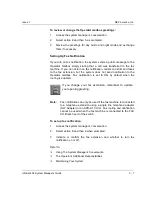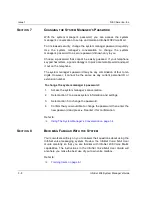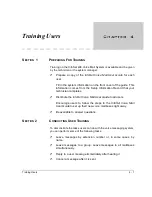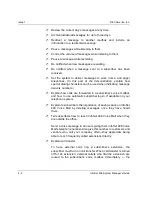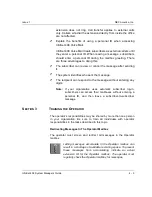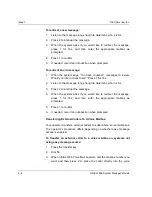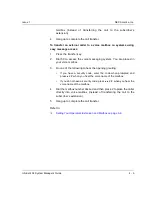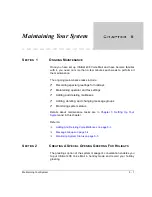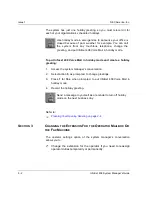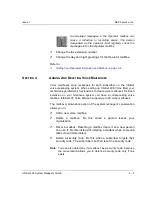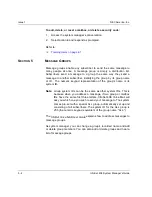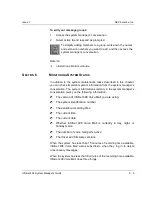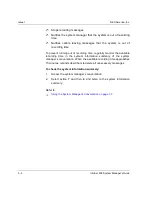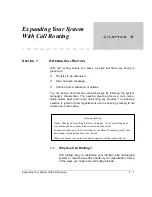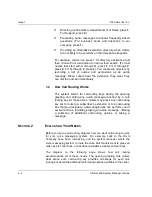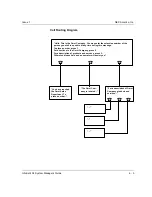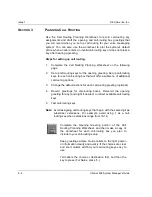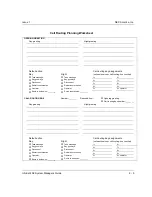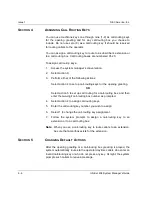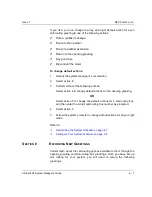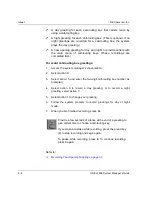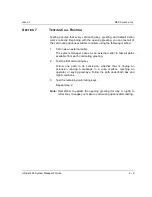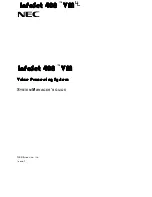
Issue 1
NEC America, Inc.
6 - 2
InfoSet 408 System Manager’s Guide
Directing routine calls to departments (For Sales, press 1.
For Support, press 2.)
Presenting audio messages to answer frequently asked
questions. (For business hours and directions to our
company, press 1).
Providing an alternative extension directory when callers
are not likely to have letters on their telephone keypads.
For example, callers can press 1 for directory assistance and
then choose from a submenu to narrow their search. (For last
names that start with A through G, press 1. For H through P,
press 2. For Q through Z, press 3). You create the directory by
recording a list of names and extensions as an audio
message. When callers hear the extension they want, they
can dial the number immediately.
1.2
How Call Routing Works
The system listens for call-routing keys during the opening
greeting and during any audio message reached by a call-
routing key. At these times, callers may press any call-routing
key set to route to a subscriber’s extension or to a call-routing
box that you designate. Call-routing boxes can perform one of
several actions, including playing an audio message, offering
a submenu of additional call-routing options, or taking a
message.
S
ECTION
2
E
VALUATING
Y
OUR
N
EEDS
Before you set up call routing, diagram how you want call routing to work
for your voice messaging system. For example, calls to the Omni
Company have been increasing, and the system manager wants the
voice messaging system to route the calls. Most callers want to place an
order, ask for directions, or ask about available products and services.
The diagram on the following page shows how call routing
accommodates all of these needs. The opening greeting tells callers
what action each call-routing key provides. Greetings for each call-
routing box detail the additional call-routing options available to the caller.
Summary of Contents for InfoSet 408 VM
Page 1: ... ...
Page 52: ...L L ...

